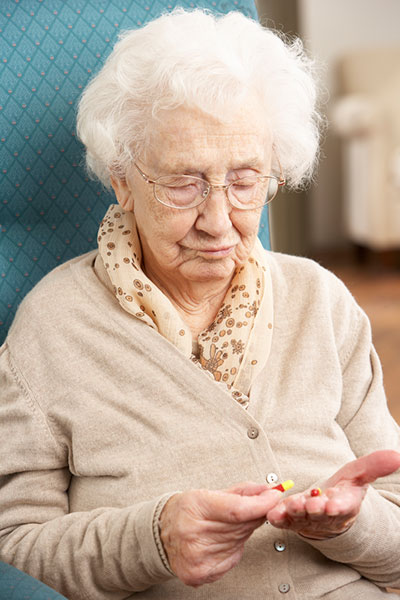Depression is high on the health agenda at the moment. But for many older people brought up to adopt a stiff upper lip, and a belief in keeping your troubles firmly to yourself, admitting you’re feeling low and struggling to cope comes hard.
As people get older common complaints such as reduced mobility, hearing or eyesight problems, and difficulty doing the things they used to do, can result in increasing isolation, anxiety, boredom, and loss of self-worth. All of which tend to lead to low mood. And if these feelings go on for a prolonged period of time, then depression can set in.
How can depression affect recovery?
You know yourself, if you are feeling low, coping with difficulties of any kind becomes so much more difficult. For older people trying to recover from an injury or illness, or even simply managing a long term health condition, the symptoms of depression can make the uphill struggle of recovery seem insurmountable.
Poor sleep, loss of motivation, fatigue, and feelings of hopelessness can all lead to feelings of ‘Why bother?’, particularly if the person is struggling to believe that they will ever be able to get back to doing the things they enjoyed before.
This can lead to them neglecting their own care routines, not making the necessary changes to their diet, failing to undertake an essential exercise regime, or ignoring their Doctor’s advice completely.
And all this inevitably damages the speed of recovery, and may even increase the risk of hospital admission.
Can carers reduce the symptoms of depression
People with depression are not able to think themselves out of the condition by sheer force of willpower, so simply telling them to “Snap out of it” or “Cheer up”, is not going to help. Support, reassurance and medical help are all required.
Making an appointment to see your GP is an essential first step. This will allow you to explore the options for drug medications, counselling and complimentary therapies that may be helpful.
Seeking the support of others is crucial. Local support groups are a great way to meet other people in the same position who will understand what you are going through. Getting out of the house and socialising is a mood enhancer in itself and can point you in the direction of other support services available locally.
Acknowledge the person’s feelings and frustrations, but continue to express positive messages and reassurance. Celebrate small successes and events.Try to find ways for the person to contribute to family life and remember to acknowledge their contribution.
The most effective treatment is likely to involve a combination of medicine, counselling, and gradual reconnection to people and activities that bring happiness.



